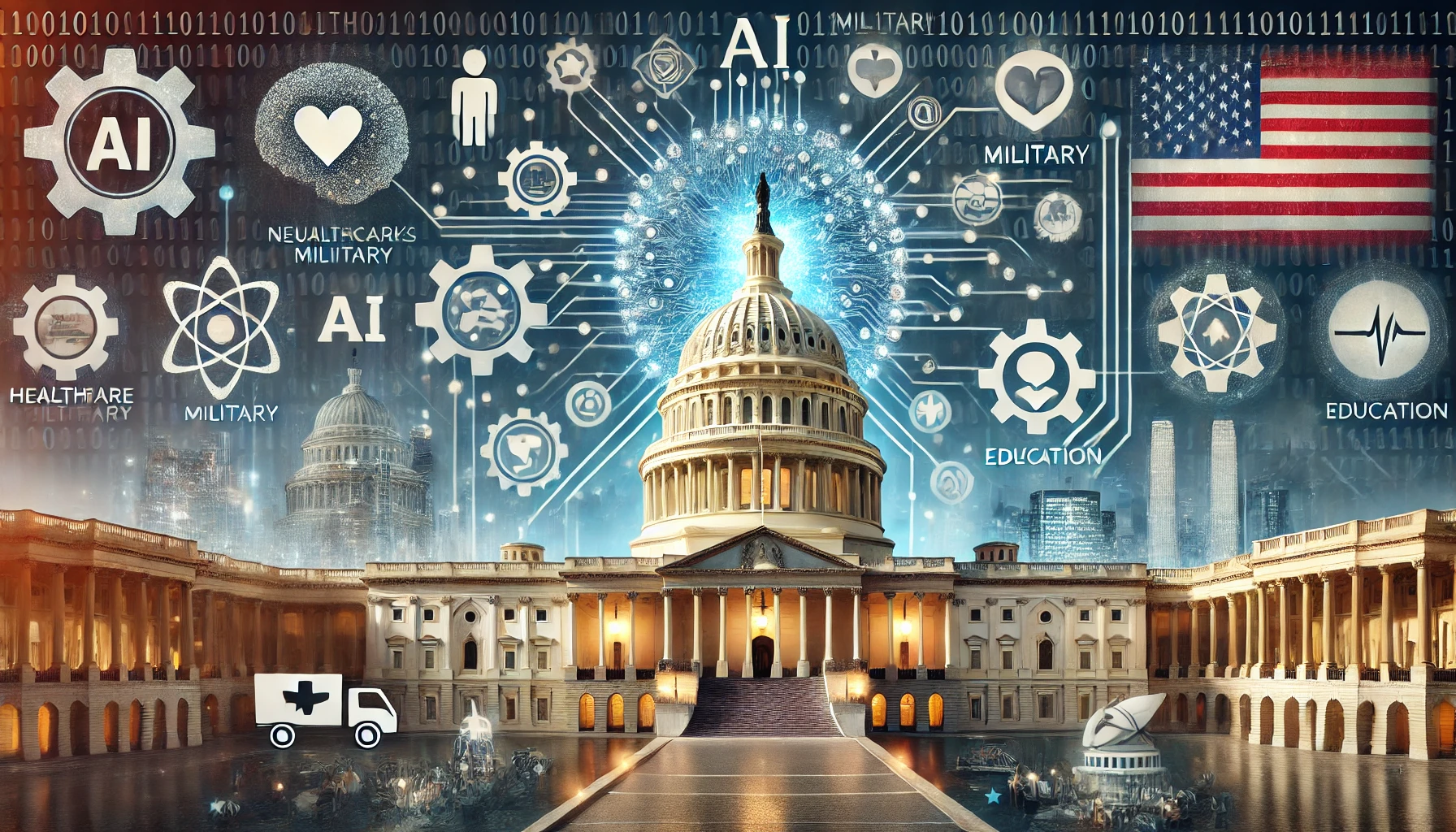Artificial intelligence (AI) has emerged as one of the most transformative technologies of the 21st century, revolutionizing industries from healthcare to education. In October 2023, the Biden administration took a significant step forward with an executive order that has since been shaping the future of AI policy in the United States. This order focuses on ensuring responsible AI development while addressing key concerns related to privacy, security, and ethical use.
Key Areas of Focus
As AI continues to evolve, U.S. policymakers are particularly interested in several critical areas, including its use in elections, healthcare, military operations, and education. These sectors are high-stakes environments where AI can offer both immense benefits and potential risks. Congress has recognized the need for robust regulatory frameworks to manage the rapid adoption of AI technologies, ensuring that their use aligns with public interest and national security.
- AI in Elections: One of the most pressing concerns is the role of AI in election processes. AI-powered tools, such as deepfake technology and automated misinformation campaigns, have raised alarms about their potential to influence elections. Legislators are now considering laws to ensure that AI applications in political campaigns are transparent and do not undermine democratic processes.
- AI in Healthcare: AI’s ability to process large datasets has the potential to revolutionize healthcare. From diagnosing diseases to personalizing treatment plans, AI is poised to improve patient outcomes. However, policymakers are focused on safeguarding patient privacy and ensuring that AI tools used in medical decision-making are accurate and unbiased.
- AI in Military Operations: The use of AI in military operations presents both strategic advantages and ethical dilemmas. AI-driven drones and autonomous weapons could change the landscape of warfare, but questions remain about accountability and decision-making in life-or-death situations. Congress is working on policies that balance national defense needs with ethical considerations.
- AI in Education: AI has the potential to transform education by providing personalized learning experiences. However, concerns around data privacy and the potential for AI to perpetuate biases in learning algorithms have prompted calls for regulation. Legislators are focused on ensuring that AI enhances, rather than hinders, educational equity and quality.
The Role of the 2023 Executive Order
The Biden administration’s October 2023 executive order sets the stage for comprehensive AI regulation, emphasizing a need for ethical AI development and use. This order addresses several core areas:
- Transparency and Accountability: Ensuring that AI systems are explainable and accountable to human oversight.
- Data Privacy: Protecting citizens’ personal information in AI applications.
- National Security: Preventing AI technologies from being misused in ways that could threaten national security.
The executive order also encourages innovation by providing a clear regulatory framework, allowing companies to develop AI technologies responsibly while protecting consumers and critical infrastructure.
Future of U.S. AI Regulation
As AI continues to evolve, so too will the regulatory landscape. Congress is expected to introduce additional legislation aimed at addressing emerging AI challenges in the coming years. Collaboration between the government, private sector, and research institutions will be essential to ensure that AI’s benefits are maximized while minimizing its risks.
The U.S. remains committed to leading the world in AI innovation, but policymakers are clear that regulation will play a key role in maintaining that leadership. With a strong regulatory framework in place, AI can continue to drive progress across industries while ensuring the safety, privacy, and security of the American public.




